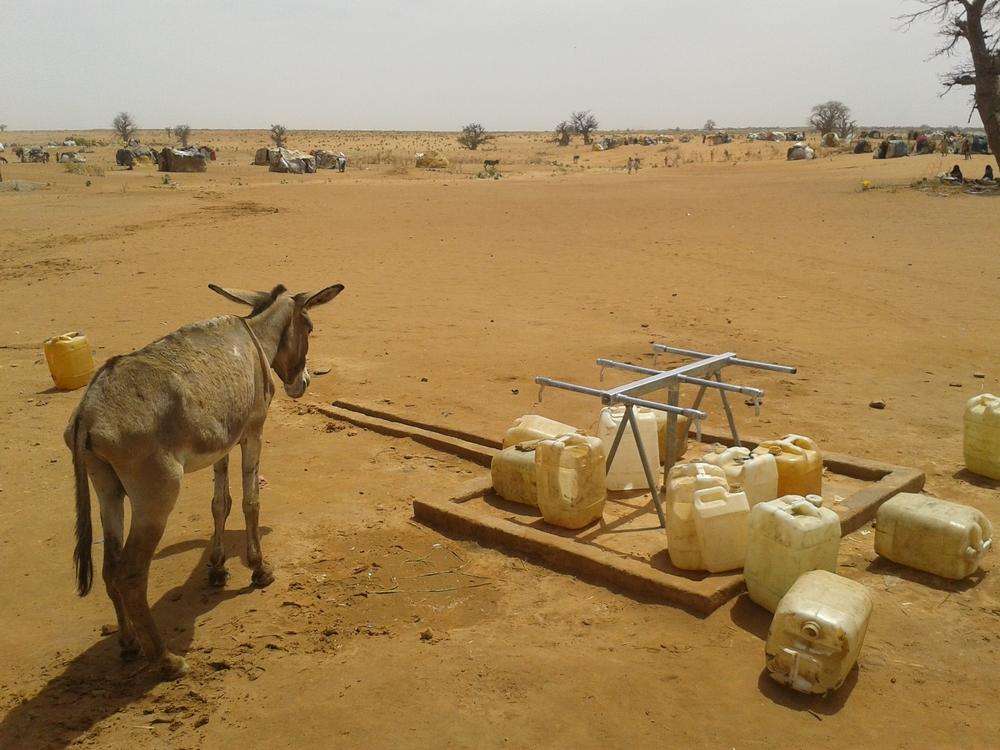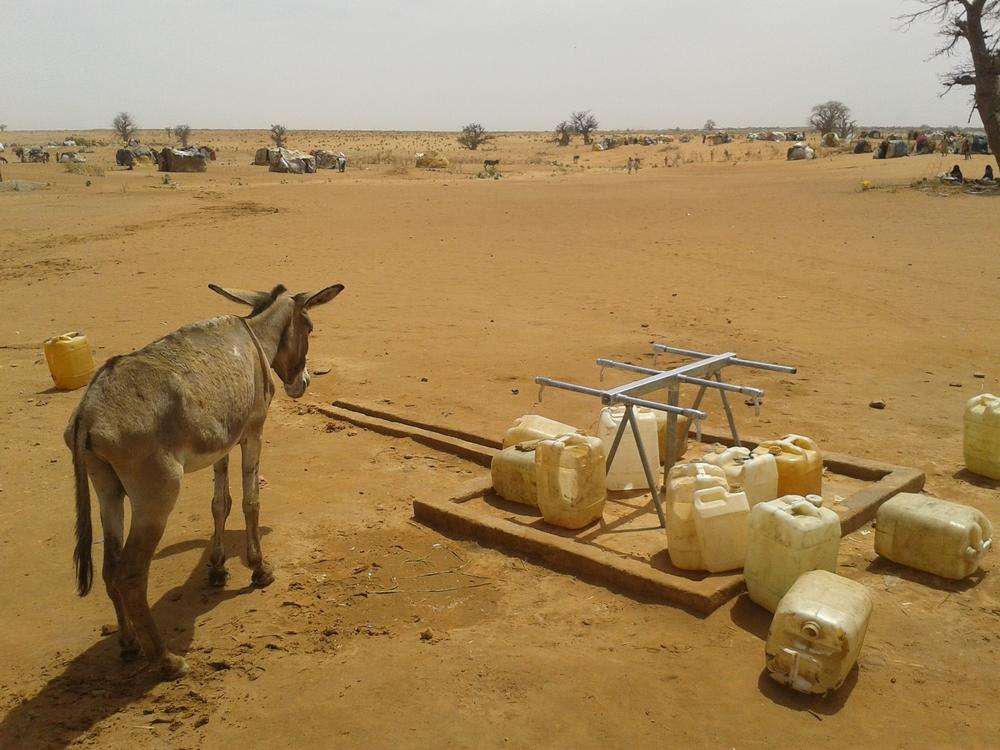NEW YORK/BRUSSELS—Extremely poor living conditions at a displaced persons camp in the Darfur region of Sudan are putting at grave risk some 15,000 victims of conflict, while an emergency medical team from the international medical humanitarian organization Doctors Without Borders/Médecins Sans Frontières (MSF) is being denied permission to travel to the camp, MSF said today.
People living in El Sereif camp near the South Darfur State capital of Nyala have barely enough drinking water to stay alive and infectious diseases such as hepatitis E are spreading. Particularly vulnerable are roughly 4,500 people who arrived in the camp in March and April and are living on a patch of desert with few basic necessities. Despite the acute and immediate needs, an MSF reinforcement team that arrived in Khartoum in May has been refused permission to travel to the camp to initiate an emergency response.
“An MSF assessment in May revealed a potentially catastrophic situation,” said Cyril Bertrand, MSF operations coordinator. “What is urgently needed is reinforcement with key staff that have emergency experience. Our immediate response was to send a team of three people with appropriate experience to provide the expertise necessary to launch initial life-saving emergency activities. We do not understand why this team has not been granted permission to travel to the camp. Despite meetings at the highest levels of relevant government ministries, their travel permits continue to be blocked.”
MSF has been working in the camp since August 2013, responding to the health consequences of poor living conditions, unsafe water, and poor hygiene.
Before the new influx, camp residents were surviving on less than five liters of water per person per day, far below the emergency standard of 15 liters. New arrivals have access to even less water.
Of particular concern is an ongoing outbreak of hepatitis E, a potentially fatal water-borne disease with no cure. As of June 21, more than 400 cases were reported this year. An alarming increase in the outbreak is possible absent a rapid and substantial water and sanitation response, either by other organizations in the camp or by the MSF emergency specialists on stand-by.
“The refusal to allow our team to travel to the camp is a major cause for concern,” said Bertrand. “We have faced administrative obstacles in the past in running our program in El Sereif, but in the face of the alarming living conditions, we find the denial of permits for the emergency team particularly inexplicable. We call on the authorities to facilitate fast-track access to avoid needless loss of life.”
MSF has worked in El Sereif camp since August 2013 providing: primary health care including out-patient consultations; maternal health care; vaccinations; therapeutic feeding for malnourished children; and currently a medical response to the hepatitis E outbreak. MSF has been in Sudan since 1979. The organization’s medical teams started working in Darfur in 1985, and have been providing medical care in the region continuously since 2004. MSF is a neutral, impartial, and independent medical humanitarian organization.





